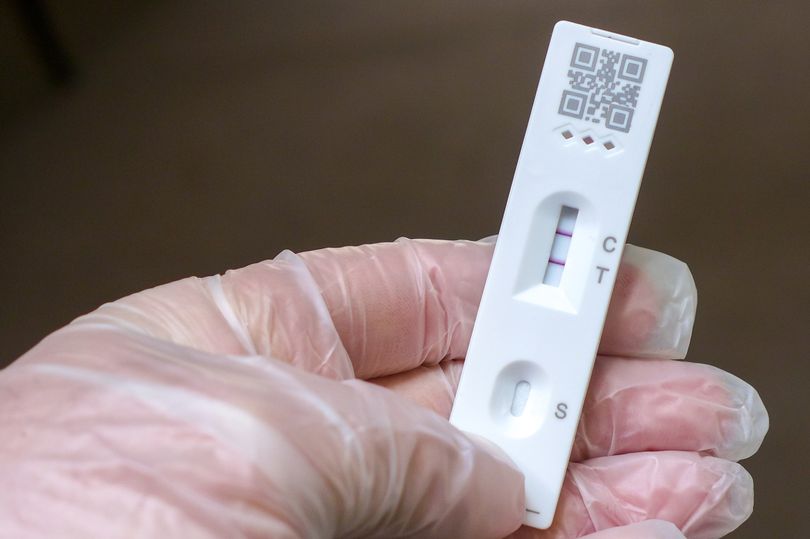
EXPERT WARNS TO CHECK FOR EXPIRED COVID-19 TESTS AS 'FLIRT' VARIANT SURGES IN THE UK
This is what you should do with out-of-date Covid-19 tests amid rising cases in the UK.
Experts are keeping a close eye on the new 'FLiRT'- Fresh Lineage of Rapid Transmission - Covid-19 variants as hospital rates suggest infections are increasing. Covid-19 hospitalisations were 3.31 in every 100,000 people around June 16 - up 23% from the week before, The Mirror reported yesterday.
If you find yourself coughing, feverish or completely ill, it may be tempting to whip out a dusty Covid-19 test and check for the illness. But be warned, these tests do have an expiry date and shouldn't be used once this has passed.
A 23-year-old content creator and aircraft mechanic, dubbed as 'Flying Chaos', seemingly learned this the hard way and shared his experience on TikTok. "If you have at home Covid test kits sitting around, check their expiration date because it could be expired," he posted to his account @flying_chaos.
"And if they're expired, they could give you a false positive or a false negative. We're not able to go back to work because of a possible false positive - two possible false positives. Check your Covid tests, make sure they're not expired please!"
Typical Covid-19 rapid antigen tests, which include a nose swab, often have a shelf-life of two years, according to the NHS. But it's crucial to double-check the expiry date on your kit as some may differ.
Professor Tim Spector, lead scientist at Zoe, previously told the Huffington Post: "Lateral flow tests or LFTs do come with an expiry date on the box. However, the date on those can vary widely and we are still unsure how inaccurate they become.
"An expired test will produce invalid results. If you have a few boxes at home, it would be wise to take a quick look for the date and use them in order of which box runs out first."
While these rapid tests aren't foolproof for detecting Covid-19, a 2021 review of 64 studies claimed they correctly identify 72% (averagely) of people with symptoms, and 58% of people without symptoms.
However, it's thought this rate can decrease over time as the testing liquid evaporates, affecting the legitimacy of any swab tests taken, according to Cleveland Clinic.
Right now, the Government is monitoring the new FLiRT variants both in the UK and internationally. While there is no change to 'wider public health advice' at this time, more data is needed to draw any conclusions about the variant's severity.
In a May announcement, the UK Health Security Agency said: "It’s normal for viruses to mutate and change, and more widely we’re still getting to grips with how the healthcare system responds to the ebb and flow of seasonal cases.
"As more data becomes available on this variant, we’ll have a better understanding of how it interacts with our immune systems and how to optimise our protection and as well as actions we can take to keep the most vulnerable safe and live our lives as normally as possible."
If you're concerned you may be affected by Covid-19, the NHS has detailed its common symptoms:
Covid-19 symptoms:
- High temperature or shivering (chills) – a high temperature means you feel hot to touch on your chest or back (you do not need to measure your temperature)
- New, continuous cough – this means coughing a lot for more than an hour, or 3 or more coughing episodes in 24 hours
- Loss or change to your sense of smell or taste
- Shortness of breath
- Feeling tired or exhausted
- Aching body
- Headaches
- Sore throat
- Blocked or runny nose
- Loss of appetite
- Diarrhoea
- Feeling sick or being sick
For more information, visit the NHS website.
What do you think? Let us know in the comment section below
2024-07-03T05:03:15Z dg43tfdfdgfd